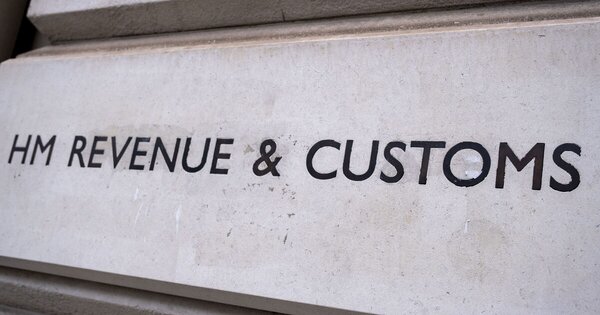Did you know UK seafarers can claim huge tax savings?
Many maritime workers miss out on thousands in potential relief each year. The seafarer earning deduction offers real tax benefits for qualifying crew members.
Seafarer pay can be significantly increased by reducing your tax bill through this deduction.
Understanding your eligibility could mean keeping more of your hard-earned money. Furthermore, the process is more straightforward than most people think.
In this article, we’ll cover everything you need to know about claiming seafarer earning deduction and getting the most from your tax relief.
What exactly is the seafarers earnings deduction?
The seafarer earning deduction is special tax relief for UK residents working on ships outside territorial waters. It lets you deduct overseas earnings from your taxable income completely.
You need to spend at least 365 days in qualifying periods at sea to claim it. This applies to both UK and foreign-flagged vessels where you work as crew.
To qualify for the deduction, you must be employed onboard a ship, and not all vessels count as ships for tax purposes. Offshore installations, such as those used in the offshore oil and gas industry or gas industry for the exploitation of mineral resources, are specifically identified in tax law and do not qualify as ships. Floating production vessels, fixed installations, and certain types of offshore installation such as FPSOs, FSUs, Flotels, and other structures engaged in offshore oil and gas industry activities are not regarded as ships and do not qualify for the deduction. Duties performed on such a vessel (i.e., a qualifying ship) are eligible for the deduction, but duties performed on offshore installations are not. Employees of the Royal Fleet Auxiliary may also qualify for the deduction if other conditions are met.
The savings can be huge - potentially thousands each year for regular seafarers. However, you must meet specific residence and employment rules to qualify.

Who can claim this maritime tax relief?
UK tax residents employed as crew members on qualifying ships can claim this relief. You need to spend at least 365 days in qualifying periods working abroad at sea.
Both officers and ratings are eligible for the deduction - rank doesn’t matter. Additionally, it covers merchant navy, cruise ships, and offshore vessels equally.
Self-employed maritime contractors can also qualify for this tax break. Having more than one job does not prevent you from claiming the deduction, as long as you meet the other eligibility criteria.
Nevertheless, you must keep your status as resident in the UK or an EEA state throughout the claim period.
How do you work out your qualifying period of sea time?
Count only full days spent outside UK territorial waters - this is crucial. The number of days you are absent from the UK at midnight is crucial for eligibility. Include travel days to and from the vessel in your calculations.
Sick leave and shore leave abroad count as qualifying time too. Days spent on holiday abroad, as well as return visits, can count towards your qualifying period, provided you are outside of the UK at midnight on those days. However, UK port days and home leave don’t qualify - keep these separate.
Keep detailed records of all movements and dates from day one. Furthermore, use official ship logs to verify your time at sea for HMRC. There is no statutory limit on how many days holiday can be included, as long as the days are spent abroad.
You must also ensure that you complete at least one part voyage to or from a foreign port during each tax year. The half day rule and spending more than half of your time outside the UK are important for qualifying.
One chief engineer I know kept a simple diary throughout his contract. He noted every port, every departure, and every arrival - it made his tax return much easier. Recording each particular day spent outside the UK helps meet HMRC requirements.

European Economic Area: Does it affect your claim?
The European Economic Area (EEA) can have a significant impact on your eligibility for the seafarers earnings deduction. If you are a UK resident or a resident of an EEA state, you may be able to claim SED, provided you meet the necessary conditions. These include completing a qualifying period usually at least 365 days where your duties are performed mainly outside the UK.
EEA residents can claim SED using the specific form R43M(SED), which is designed for EEA state merchant seafarers and has been available since the 2011 to 2012 tax year. It’s important to check your residency status and understand how EEA rules interact with UK tax law, as this can affect your entitlement to tax relief. Always review the latest HMRC guidance to ensure you’re claiming SED correctly and maximising your earnings deduction for each tax year.
Special Cases: North Sea Employment and Floating Production Vessels
When it comes to claiming SED, not all offshore work is treated the same. Employment in the North Sea, for example, is considered a ‘designated area’ by HMRC and is treated as part of the UK for tax purposes. This means that days spent working in the North Sea generally do not count as days outside the UK for your qualifying period. Similarly, floating production vessels such as Floating Production Storage and Offloading units (FPSOs), Floating Storage Units (FSUs), and Flotels are classified as fixed installations rather than ships.
As a result, time spent on these vessels typically does not qualify for SED, although there may be exceptions if certain conditions are met. If your work involves North Sea operations or floating production vessels, it’s essential to seek expert advice to ensure you’re claiming SED correctly and not missing out on valuable tax relief.

What's the tax return process for seafarer deduction?
Complete the seafarer pages on your Self Assessment tax return carefully. Provide detailed employment and voyage information for each trip. You must claim seafarers earnings deduction and claim tax relief by following HMRC procedures.
Submit supporting documents like crew lists and voyage records with your return. Additionally, work out qualifying earnings for each employment period separately. You cannot make your first claim until at least 365 days have passed since your qualifying period began, and the anniversary date is not critical for eligibility but may affect the timing of your claim.
Apply the deduction against your overseas maritime income only. However, HMRC may ask for extra evidence during processing - be prepared.
How much tax can you actually save?
The deduction applies to 100% of qualifying overseas earnings - that's the lot. Your potential savings depend on your total income and tax band.
Higher rate taxpayers save 40% on deducted amounts - substantial savings. Basic rate taxpayers save 20% on qualifying earnings - still significant.
There's no limit on the amount of earnings you can deduct. Consequently, savings can reach thousands per year for regular seafarers working overseas.

What mistakes should you avoid when claiming?
Don't include UK territorial water time in your calculations - it won't count. Never claim for periods when you weren't UK tax resident.
Don't mix up qualifying and non-qualifying voyage segments - keep them separate. Additionally, don't forget to declare all your worldwide income first before applying deductions.
Keep detailed records from day one of employment - not just tax return time. Furthermore, get professional advice for complex international arrangements - it's worth it.
Ready to claim your seafarer tax relief?
The seafarer earning deduction represents one of the most valuable tax breaks available to maritime workers. With proper planning and accurate record-keeping, you could save thousands in tax each year.
Don't let another tax year pass without claiming what you're rightfully owed. Pie is the UK's first personal tax app, helping working individuals tackle their tax burdens head-on.
It's the only self assessment solution offering integrated bookkeeping, real-time tax figures, simplified returns, and expert advice when you need it. Ready to maximise your seafarer tax relief?
Start your journey with Pie.tax today and keep more of your earnings where they belong - with you.











